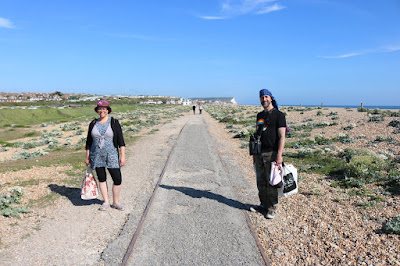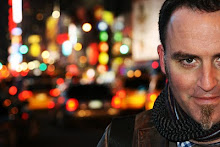8th August 2020: A Picnic on the Heath
August 8th is my birthday. In ordinary years, I take a bunch of my favourite people punting in Cambridge, or head to the standing stones at Avebury to unleash my inner pagan, but, over the years, I have spent several birthdays on Hampstead Heath.
The first Heath birthday was in 1996 when I was at drama school. I had recently discovered the place and was keen to show it off to those who hadn’t yet been drawn in by its magical ways. I still have the pictures I took of Edward Thornhill and Sam Jane standing in tall grass, somewhere near Kenwood, recreating a corset-tingling scene from A Room With A View! The pictures were taken in black and white but have a curious green tinge. In the 1990s, long before the digital age made photography accessible for all, I took pictures on XP2 film. The joy about XP2 was that, although the film was technically black and white, it could also be developed in the same colour-processing machines which back then could spit a whole set of pictures out in an hour. The drawback, which was also a positive, was that the photographs ended up with colourful hues to them. It was impossible to predict what colour your pictures would turn out. Sometimes they would be almost black and white. Other times they’d have a subtle sepia tint, or a rose-coloured wash. They could be slightly green, a little blue, or, on less happy occasions, garish orange! It was an exciting lottery which gave each set of prints a unique mood.
I loved the pictures because they made me feel like I was living in Edwardian times, and, certainly, when I look back at my albums, you’d be forgiven for thinking the optimistic, youthful faces peering out at you, would shortly be off to fight in the trenches!
Anyway, I wanted everything to be as simple as possible for my birthday this year. Many of my friends are still wary about travelling or being in confined spaces, so a picnic on Heath was a no-brainer. It actually never occurred to me that the weather would be anything other than sunny this year. Despite the fact that it’s never actually rained on my birthday, I regularly get myself in a proper pickle trying to think of alternatives for inclement weather. This year, it was just going to have to be what it needed to be.
The highlight for me was the fact that my dearest friend, Fiona was flying down from Glasgow to join me. I have missed her intensely during lockdown and this has been the longest period since we met where we’ve not seen each other in the flesh. The first thing I did when she stepped into our house was hand her the Christmas present which had sat on our fireplace for eight months!
We arrived on the Heath just after noon and chose a spot half way between the summit of Parliament Hill and the Men's Ponds. When we arrived, the sky was pretty thick with white cloud but after about half an hour, the clouds vanished, the sun burned through, and it suddenly got really hot: panic-inducingly hot. So we made a dash for the shade of the nearest tree, where we pretty much stayed for the next ten hours, barring, of course, the occasional visit to an ice cream van on the edge of the Heath at Millfield Lane.
The police were patrolling. Since lockdown, police have been a regular fixture on the Heath, which feels a little strange. They are, of course, the ultimate fun-sponges! We kept seeing panda cars creeping along the wider pathways. They mostly seemed to be handing out fines to cyclists, which felt like a bit of a waste of resources.
There are three natural lakes used for swimming on the Heath. A Men's pond, a Women’s pond and a pond on the other side of the heath in which both men and women can swim. Since the ponds reopened in July, you have to book to swim in them and they’re usually sold out days in advance, which leaves many people bitterly disappointed, particularly on a scorchingly hot day.
Between the Men’s and the “Ladies’” pond, there’s a more shallow boating lake. It’s recently been considerably re-shaped, extended and landscaped to avoid a repeat of the 1975 catastrophe which followed a freak storm when a phenomenal amount of rain fell on the Heath in a very short period of time. All of the ponds burst their banks and caused such terrible floods in the neighbouring districts that, in one case, a man actually drowned in his basement.
Anyway, I’ve never seen anyone so much as paddle in the boating lake - giant signs warn against it - but on Saturday, scores of people were actually swimming there. There were kids in there wearing arm bands and all sorts. It was like a modern day version of a Seurat painting!
I think it was probably the angry-looking fishermen on the edge of the lake who dobbed the swimmers into the police. They’ve probably paid big money for the licenses which allow them to fish in those ponds and wouldn’t necessarily want scores of sun-stroked idiots frightening the fish away!
In total, I think 17 of us sat down to picnic (if you include the babies inside the tummies of Abbie and Little Michelle.) Neither yet know the gender of their children but if old wives tales are to be believed, Michelle’s bump, which sits high, neat, large and proud, would almost certainly be a boy.
 |
| Most of the picnickers |
In the golden hour before dusk, the shadows lengthened and the entire heath started basking in a glorious peach-coloured light, which melted into an arc of pink and purple cloud, whilst the red and white lights of Central London came out to dance on the southern horizon.
We sat, eating pizza, still under our tree, as the evening winds drew in and the light died. The last to leave (apart from Nathan, and Fiona, who stayed at ours) were Ted, his wonderful partner Gersende and their three year-old daughter, Emma who is the spitting image of both of her parents, and one of the most charming kids I’ve met in a long time. Abbie’s son, Wilfred (himself something of a charmer) was obviously also somewhat taken by Emma. They stared at each other for long periods of time like star-crossed lovers in a period drama. And now we’re back to A Room With A View!
 |
| Fiona, Edward, Nathan and me |
It felt fitting to end the night with Fiona and Ted. Two of my oldest friends, and probably the two people (aside from my brother and parents) who have attended more birthday picnics than anyone. All three of us were at the Northampton Music School together. I’ve written recently about our myriad adventures as a busking string trio in the Midlands.
I checked my emails as we left the Heath to find one from my astral twin, Alison, another music school alumnus. We were born on the same day in the same year and always drop each other a Happy Birthday missive. She’s currently training to be a priest.
I left the Heath feeling a wonderful sense of happiness that people are returning to the joys that nature can bring. The place was filled with families. And children playing and laughing loudly in a way that they just wouldn’t whilst playing computer games and such. This is the biggest gift, I feel, that lockdown has given us.
 |
| That pink arc |








































